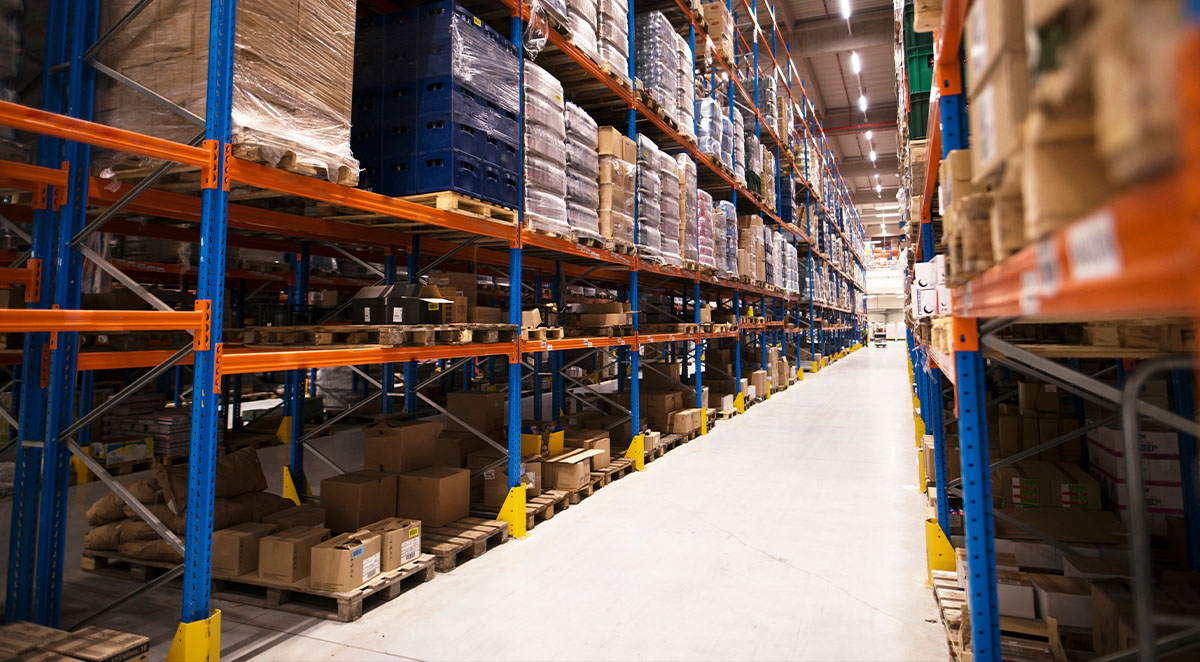Common Types Of Pests In Warehouses
Pests in warehouses can range from small insects to larger animals, posing significant challenges for proper storage and product preservation. Let's take a closer look at some of the most common pests encountered:
1. Rodents (rats, mice)
These agile creatures are not only a nuisance but also a serious threat to the integrity of stored goods. With their sharp teeth, they can effortlessly chew through packaging, leading to contamination and financial losses. Furthermore, rodents are carriers of various diseases, making their presence even more concerning.
2. Insects (cockroaches, ants, beetles)
Insects are masters of infiltration, making them a persistent problem in warehouses. These tiny invaders can easily find their way into stored products, causing contamination, spoilage, and financial loss. The presence of cockroaches, ants, or beetles can jeopardize the quality and shelf life of goods, demanding immediate attention and effective pest control measures.
3. Birds (pigeons, sparrows)
While birds may seem harmless, their presence in warehouses can lead to a range of issues. The droppings of pigeons and sparrows not only deface and damage goods but can also spread harmful bacteria. Moreover, their nests can cause blockages in guttering systems, leading to water damage and further complications.
4. Stored product pests (weevils, moths)
These tiny pests may go unnoticed until they infest stored food and grain products. Weevils and moths are notorious for causing significant losses in the agricultural and food industries. Their presence can result in the deterioration of product quality, contamination, and financial setbacks.
By understanding the diverse range of pests that can infiltrate warehouses, it becomes evident that implementing robust pest management strategies is crucial for maintaining the integrity and safety of stored goods.
Damage Caused By Pests
Pests in warehouses can cause a variety of problems, including:
- Contamination of stored goods: Droppings, feathers, and insects in products can lead to goods being deemed unfit for sale, leading to financial losses.
- Structural damage: Pests like rodents can chew through wires, wood, and even metal, causing structural damage to the warehouse.
- Health and safety risks: Pests can spread diseases, putting your employees' health at risk and potentially causing legal issues.
Prevention And Control Methods
Preventing a pest infestation can save you time, money, and stress. Some effective preventative measures include:
- Regular inspections and maintenance: Regularly inspect your warehouse for signs of pests, such as droppings, damage, or nests.
- Proper sanitation practices: Cleanliness can deter pests. Regularly clean storage areas, dispose of garbage promptly and keep food sealed and stored correctly.
- Exclusion measures: Seal all possible entry points to prevent pests from gaining access to the warehouse.
- Pest-proofing strategies: Store goods off the floor and away from walls to discourage pests from residing and breeding.
The Importance Of Professional Pest Control
Professional pest control services offer a wide range of expertise and experience in dealing with various pests that can infiltrate homes and businesses. With their in-depth knowledge, they can provide an Integrated Pest Management (IPM) approach, which takes a holistic approach to pest control.
This includes thorough prevention measures, proactive monitoring techniques, and effective control strategies. By employing this comprehensive approach, professional pest control services not only minimize the risks and liabilities associated with pest infestations but also ensure long-term pest management solutions for their clients.
Whether it's dealing with common pests like ants, rodents, or termites or tackling more challenging pest issues, such as bed bugs or cockroaches, professional pest control services are equipped to handle it all with precision and efficiency.
Modern pest control methods have evolved to prioritize eco-friendliness and sustainability. These methods strive to minimize reliance on pesticides by emphasizing prevention and non-chemical control techniques.
Integrated Pest Management (IPM)
Integrated Pest Management (IPM) is a holistic and proactive approach to pest control, encompassing a wide range of strategies to prevent pests or minimize their damage. It is applicable in various settings, including both agricultural and non-agricultural environments like warehouses.
IPM employs a combination of innovative techniques and practices, such as biological control, habitat manipulation, cultural practice modifications, and the utilization of resistant varieties. These methods are carefully integrated to create a comprehensive and sustainable pest management system.
By embracing the principles of IPM, you can effectively address pest issues while prioritizing environmental sustainability and economic efficiency. This proactive and multifaceted approach ensures the long-term prevention of pests, promoting a healthier and more balanced ecosystem.
Protect Your Warehouse From Pests With Rid-A-Bug
Proactive pest management in warehouses is not just essential—it's a strategic business decision. It safeguards your inventory, protects your employees' health, and saves you money in the long run. At Rid-A-Bug, we understand the unique challenges warehouses face when it comes to pest control.
Our professional team is experienced in providing effective, eco-friendly pest control solutions, including Integrated Pest Management services.
Don't let pests disrupt your operations. Contact us today for a comprehensive pest management plan tailored to your needs. Remember, prevention is always better than cure, especially when it comes to pests in your warehouse.

